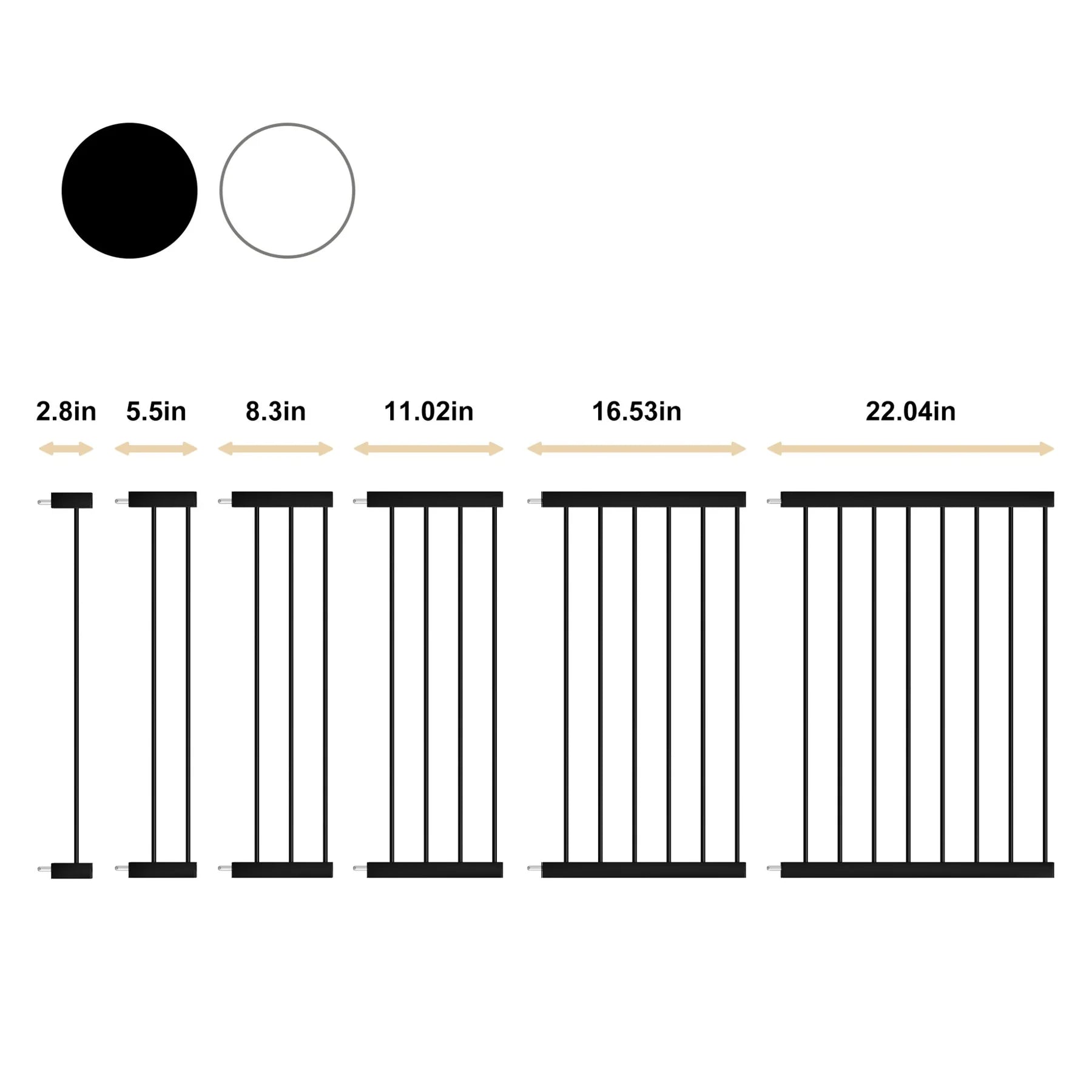8 Fascinating Facts About Black Cats
1. Good Luck Charm
Okay, so black cats get a bad rap in some places, but it's not all doom and gloom for these furry friends. In fact, in many cultures, they're seen as total good luck charms! It's kind of wild how different beliefs can be depending on where you are.
In Scotland, for example, if a black cat shows up on your doorstep, it's like winning a mini-lottery – it means prosperity is heading your way. Who wouldn't want a little extra cash? The French even call them "Money Cats" and think treating them well can bring you riches. I mean, I'm all for being nice to cats anyway, but if it means a little extra in my bank account, even better!
British sailors used to bring cats on ships to keep the rodent population down, but a black cat? That was extra special. They believed it would bring good luck and make sure they had a safe trip home. Fishermen's wives would also keep black cats at home for the same reason. It's like having a furry little guardian angel.
It's interesting how these beliefs stick around. Even though we might not all be superstitious, it's cool to see how different cultures view these animals. Maybe next time you see a black cat, you should give it a friendly nod – you never know, it might just bring you some good fortune!
Even in Japan, black cats are considered lucky, especially for single women. They're thought to bring good luck in love and relationships. So, if you're looking for a partner, maybe consider adopting a black cat! You might just find your purr-fect match.
Pirates, though, had a more complicated view. A black cat walking toward you? Bad luck. Walking away? Good luck. And if a black cat jumped onto the ship and then jumped off again? Well, that meant the ship was doomed to sink. Talk about pressure!
2. Witchcraft
Black cats and witchcraft? Yeah, they've been linked for a while, and it's not always been a good thing for the kitties. Back in the Middle Ages, things got pretty rough for black cats because of this association. It's kind of wild how a simple thing like fur color could lead to so much superstition and, honestly, cruelty.
See, it all started getting serious when people started thinking black cats were somehow connected to the devil. Pope Gregory IX even declared them symbols of Satan back in 1233. Can you imagine? Suddenly, these cats weren't just cats anymore; they were seen as demons in disguise or helpers of those devil-worshippers. Talk about a bad rep!
This belief led to some pretty awful stuff. People started killing black cats, sometimes even their owners, because they were so afraid. It's a dark part of history, and it's sad to think about how many innocent animals suffered because of fear and misunderstanding.
Even today, that old superstition sticks around. Some animal shelters won't let people adopt black cats in October because they're worried about them being used in some kind of sacrifice. It's a reminder that even though we've come a long way, those old beliefs can still have an impact.
But it wasn't always like this. In ancient Egypt, black cats were actually worshipped! They were seen as the embodiment of the goddess Bastet, who was all about protecting homes and families. Killing a cat back then was a crime punishable by death. Talk about a turnaround, huh?
So, next time you see a black cat, remember that its history is way more complicated than just being a Halloween decoration. They've been gods, demons, and everything in between. It's a wild ride for a furry friend.
3. Eumelanin
So, what makes a black cat black? Well, it all comes down to a pigment called eumelanin. Eumelanin is responsible for the black color in their fur, skin, and even their eyes. It's pretty interesting how genetics work to determine coat color in cats.
It's not always a straightforward thing, though. Sometimes, even if a cat has the genes for black fur, other genetic factors can influence how that color is expressed. You might see a black cat with subtle tabby markings, especially in sunlight. That's because the tabby pattern gene is still there, just hidden beneath the black.
Speaking of sunlight, did you know that black cats can actually "rust" in the sun? Just like how our hair can get lighter in the summer, the sun can bleach the pigment in a black cat's fur, turning it a reddish-brown color. It's kind of like a natural highlight effect!
It's fascinating how a single pigment can create such a variety of appearances in cats. From the deepest black to subtle tabby markings, eumelanin plays a big role in their unique looks.
Here's a quick rundown of some key points about eumelanin and black cats:
- Eumelanin is the primary pigment responsible for black fur.
- Sunlight can cause black fur to "rust" or turn reddish-brown.
- Other genes can influence how eumelanin is expressed, leading to tabby markings in some black cats.
4. Bombay Cat
Okay, so you know how some cats can be black, but it's just a color variation? Well, the Bombay cat is different. It's the only breed that's always solid black. Seriously, everything is black: fur, paw pads, even their whiskers! They were specifically bred to look like miniature panthers, and honestly, they nailed it.
I remember when I first saw a Bombay, I was blown away. I mean, you see black cats all the time, but there was something so sleek and panther-like about this one. It was like a little shadow darting around the room. They were created in the 1950s by crossing black American Shorthairs with Sable Burmese cats. The goal? A domestic cat that resembled a black panther. They're often called "parlor panthers" because of their appearance and friendly nature.
They usually have striking copper or orange eyes, which really pop against their black fur. It's a pretty cool contrast. If you're thinking about getting one, just know they're known for being pretty affectionate and playful. So, be prepared for some serious cuddle time!
I think what's really interesting about Bombay cats is how intentional their breeding was. It wasn't just a random occurrence; someone specifically set out to create a miniature panther, and they succeeded. That's pretty neat, if you ask me.
5. Bad Luck
Okay, so not everyone thinks black cats are good luck charms. In many places, especially in North America, they're seen as a sign of bad luck. It's kind of a bummer for the kitties, honestly.
The superstition probably comes from the Middle Ages, when people started associating black cats with witches and evil. It's a pretty old belief, and it's stuck around for a long time. I mean, think about Halloween decorations – how often do you see a black cat lurking around?
Here's a quick rundown of why some people think they're unlucky:
- Crossing your path: If a black cat crosses your path, some believe it means misfortune is headed your way. Gotta watch out!
- General association with witches: Because of the historical connection, they're often linked to witchcraft and the occult. Spooky!
- Just a dark color: Some people are just superstitious about the color black in general, and that extends to cats. It's kind of silly, but hey, beliefs are beliefs.
It's a shame that these cool cats get such a bad rap. They're just like any other cat, and they deserve love and cuddles, not fear and superstition. Maybe we can all try to be a little less superstitious and a little more accepting of our feline friends, no matter what color they are.
6. Bubonic Plague
Okay, so this is a dark one. There's a weird, twisted connection between black cats and the bubonic plague, also known as the Black Death. It's not what you think, though. It's not like black cats caused the plague. It's more like they got caught in the crossfire of superstition and ignorance.
See, back in the Middle Ages, people were super superstitious. Black cats already had a bad reputation, being associated with witches and bad luck. So, when the plague started spreading, people started blaming anything they thought was evil or unlucky. Sadly, black cats were an easy target. People started killing them, thinking they were somehow helping the plague spread.
But here's the messed-up part: the plague was actually spread by rats. And cats, you know, eat rats. So, by killing off the cats, people were actually making the rat problem worse, which in turn made the plague spread faster. It's a classic case of good intentions gone horribly, horribly wrong.
It's a grim reminder of how fear and misinformation can have devastating consequences. The bubonic plague was a horrific event in human history, and the persecution of black cats only made things worse. It's a good lesson in thinking critically and not jumping to conclusions based on superstition.
So, next time you see a black cat, remember that they're not agents of disease or bad luck. They're just cats, and they might even be helping to keep the rat population down!
7. American Bobtail

American Bobtails are pretty cool cats, and they come in black! What makes them stand out? Well, it's right there in the name: their bobbed tail. It's not just a short tail; it's a unique feature that makes them instantly recognizable. They're not super common, but they're definitely gaining popularity.
These cats are known for being really friendly and smart. They're often described as dog-like because they can be trained to do tricks and even enjoy playing fetch. Plus, they're pretty adaptable, so they usually get along well with kids and other pets. If you're looking for a cat that's a bit different and has a great personality, the American Bobtail might be the perfect fit.
American Bobtails are known to be quite playful and interactive, often engaging in games and showing a lot of affection to their families. They're not the type to just sit around all day; they like to be involved in what's going on.
Here's a quick rundown of what makes them special:
- Bobbed tail (obviously!)
- Friendly and intelligent
- Adaptable to different living situations
- Good with kids and other pets
8. Maine Coon

Maine Coons are known for being big, fluffy cats, and some of them are black! It's not the most common color for them, but a black Maine Coon is a sight to behold. They're like gentle giants with a sleek, dark coat.
Maine Coons are one of the largest domestic cat breeds. They're also known for being super friendly and playful, which makes them great family pets. If you're looking for a cat that's both beautiful and has a great personality, a black Maine Coon could be perfect.
Maine Coons are often called "gentle giants" because of their size and sweet nature. They tend to get along well with kids and other pets, making them a great addition to many households.
Here's a quick look at some common Maine Coon traits:
- Size: Large (can weigh up to 25 pounds or more)
- Coat: Long and thick
- Temperament: Friendly, playful, and affectionate
- Grooming: Requires regular brushing to prevent mats
Conclusion
So, there you have it. Black cats are pretty cool, right? They've got this whole mysterious vibe, but really, they're just like any other cat. They come in all sorts of breeds, and some cultures even think they bring good luck. It's kind of wild how much old stories and superstitions have shaped what people think about them. But if you've ever spent time with a black cat, you know they're just sweet, playful, and sometimes a little bit goofy. Next time you see one, maybe give it an extra pat. They could use a little more love, and honestly, they totally deserve it.






Leave a comment